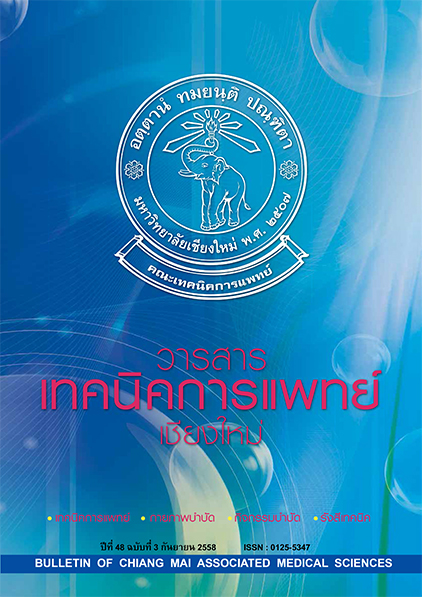Perceptions of professional competencies of Thai occupational therapists
Main Article Content
Abstract
Background: Competency represents an expectation of skills in a professional practice which can be viewed in various aspects and can be developed over time. To date, there has been no evidence as to how Thai occupational therapists perceive their professional competencies.
Objectives: The objectives of this study were 1) to describe the perceptions of professional competencies of Thai occupational therapists, 2) to describe how Thai occupational therapists develop their professional competencies, and 3) to describe factors that promote or obstruct the development of professional competencies of Thai occupational therapists.
Methods: This phenomenological qualitative research explored the perceptions of professional competencies of the Thai occupational therapists who have been working for 2 years and over. Data collection was conducted by semi-structured interviews with 22 occupational therapists. Each interview lasted between 45 and 60 minutes. The data was analyzed by thematic analysis technique.
Results: Results of the study revealed 5 themes of the professional competencies of Thai occupational therapists including: 1) competency in knowledge (knowledge of occupational therapy and general knowledge), 2) competency in team-working (collaboration or helping each other, respect, communication and coordination), 3) competency in delivering an occupational therapy service (therapeutic relationship, explanation to client and family, time management, and personality), 4) ways to develop the professional competencies (attending conferences, sharing knowledge, searching for information/knowledge on the internet, having a role model), and 5) influencing factors in the development of professional competencies (promoting and obstructive factors).
Conclusion: The results of this study can be used as the basic knowledge on professional competencies of Thai occupational therapists for universities which produce occupational therapists. The knowledge may also lead to the development of professional competency standards of occupational therapists in Thailand.
Bull Chiang Mai Assoc Med Sci 2015; 48(3): 192-203. Doi: 10.14456/jams.2015.16
Article Details
Personal views expressed by the contributors in their articles are not necessarily those of the Journal of Associated Medical Sciences, Faculty of Associated Medical Sciences, Chiang Mai University.


